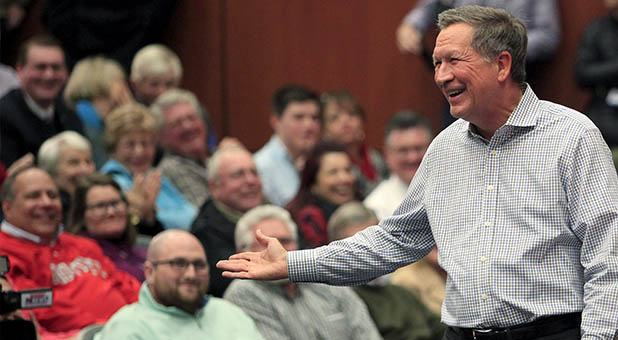What’s the Deal With South Carolina’s Polling?
You can be sure there will be new polls in South Carolina to talk about very soon, either Sunday, in the aftermath of Saturday night’s debate, or later in the week, just ahead of next Saturday’s Republican presidential primary election.
The first new poll out of the Palmetto State in nearly three weeks was released Friday morning by the Augusta Chronicle. The next most recent was conducted in late January, before the Iowa Caucuses and New Hampshire Primary, and at a time when the GOP presidential field was twice as big as it is now.
The Chronicle‘s poll, numerically, isn’t very different than those previous polls. It places Donald Trump in the lead at 36.3 percent, Ted Cruz in second at 19.6 percent, and Marco Rubio in third at 14.6 percent. Jeb Bush also polled in double digits at 10.9 percent, which places him in fourth.
The biggest changes are for the remaining candidates, John Kasich and Ben Carson, who have both seen a reversal of fortunes. Kasich, who had been polling in the low single digits, moved up to 8.7 percent in the days following his second-place finish in New Hampshire.
Meanwhile Carson—who has been fading fast—fell from double digits in late December to just 4.7 percent in the newest survey of likely Republican voters. He has pledged to stay in the race until he felt God has told him “the door has closed.” He has a chance to reignite his campaign Saturday night in the CBS Republican Presidential Debate.
The poll asked the respondents to describe their ideology, both in terms of their political leanings and their Christian faith. Of those who participated, 78.8 percent said they were either “somewhat” (35.8 percent) or “very” (43.0 percent) conservative. Also, 65 percent self-identified as “evangelical” or “born-again Christian” voters.
But Trump was the clear leader, winning every demographic, except two: voters 18-29 years of age went with Rubio, while those who identified as “very liberal” went with Kasich. Trump otherwise dominated every other age, ethnic, ideological and religious group in the survey, which is similar to exit polling data from New Hampshire earlier this week.
The poll was conducted following the New Hampshire Primary, but did not ask voters how certain they were about their picks. But polling in January suggested about 65 percent of those surveyed had locked in their choices and weren’t likely to change their minds, and the current results certainly seem to reflect that notion.
The Chronicle‘s poll has a margin of error of 3.5 percentage points.
















































